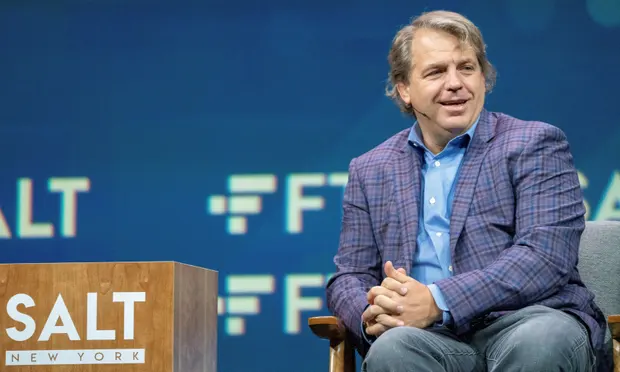The owners of Arsenal and Liverpool have joined Chelsea’s Todd Boehly in looking into establishing a multi-club network pioneered by Manchester City’s owner, City Football Group.
It is understood that Arsenal’s Stan Kroenke – who already owns an MLS team – and his Liverpool counterpart John W Henry have explored adding clubs inside and outside Europe to their portfolios, after Boehly indicated he would like to set up what he described as “a multi-club model”. Arsenal, Liverpool and Chelsea are under American ownership.
City Football Group, owned by the Abu Dhabi United Group, has a stable of clubs in 11 countries, including three in Europe: the Spanish team Girona, Lommel from Belgium and the French side Troyes.
Boehly is believed to have begun the process of finding other clubs to invest in after reportedly being turned down by the Brazilian club Santos, where Pelé spent most of his career. He is understood to have instructed Chelsea’s new president of business, Tom Glick, to take charge of the process, which could lead to investment in clubs in the Belgian and Portuguese leagues. They and Brazil are seen as potentially lucrative sources of young players, with Boehly believed to have consulted Jorge Mendes over which clubs to consider in the Portuguese agent’s homeland.
Kroenke, who owns Colorado Rapids in the MLS, the Denver Nuggets in the NBA, Colorado Avalanche in the NHL and the NFL champions the Los Angeles Rams among others, is also understood to have explored the possibility of acquiring clubs in Brazil, Belgium and Portugal. While Arsenal sources have played down any immediate plans, the club are believed to want to develop their existing links with the South American country in particular. Arsenal were cleared of improper dealings with the Belgian club Beveren after a Fifa investigation in 2006 – before Kroenke’s involvement.
Liverpool’s owner, Fenway Sports Group, owns baseball’s Boston Red Sox, Pittsburgh Penguins from the NHL and last year sold a large stake to RedBird Capital – the company that acquired the Italian champions Milan in August for £1.1bn and has an 85% stake in Toulouse. It is understood FSG would like to add to that stable. A spokesperson for FSG declined to comment.
The possibility of helping players from weaker leagues to become eligible for work permits in the UK by using their network is another major factor for the growing interest in the multi-club model, the introduction of Governing Body Endorsement (GBE) rules after Brexit having made the process much more complicated for Premier League clubs. According to a study by the Athletic, nine Premier League clubs – Arsenal, Brentford, Brighton, Crystal Palace, Leicester, Manchester City, Nottingham Forest, Southampton and West Ham – have, between them, ties to 25 clubs in Europe and further afield.
Uefa regulations bar entry to European competition to clubs that “hold or deal in the securities or shares of any other club participating”, although this does not apply if a person with a 100% shareholding in one club has a “non-decisive influence” shareholding in another club in the same competition.
“We’re going to be continuously adding resources” Boehly told the Salt Conference this month. “We’ve talked about having a multi-club model. I would love to continue to build out the footprint. There’s different countries where there’s advantages to having a club. Red Bull does a really good job at Leipzig and at Salzburg, both of which are playing in the Champions League, so they’ve figured out how to make that work. You have Man City that has a very big network of clubs.
“I think the challenge that Chelsea has now, or one of them, is that when you have 18-, 19-, 20-year-old superstars, you can loan them out to other clubs but you put their development in someone else’s hands. I think that our goal is to make sure we can show pathways for our young superstars to get on to the Chelsea pitch while getting them real game time. To me the way to do that is through another club somewhere in a really competitive league in Europe.”
Source: The Guardian



